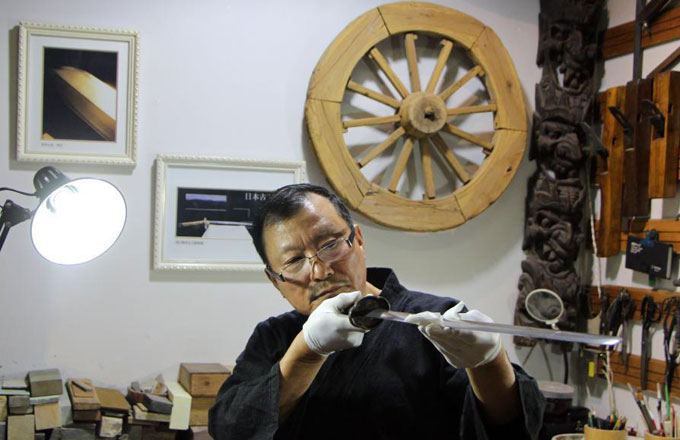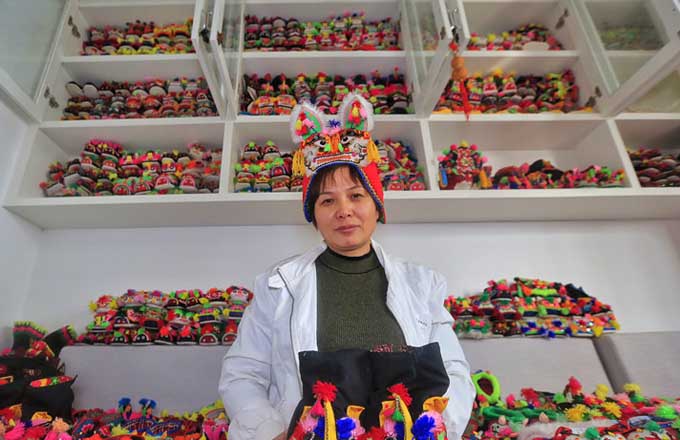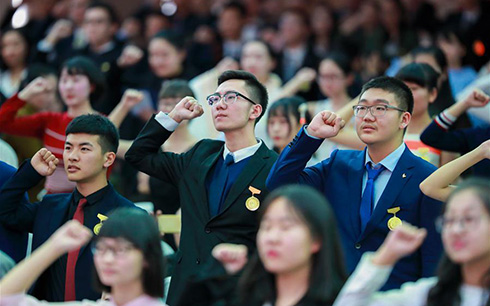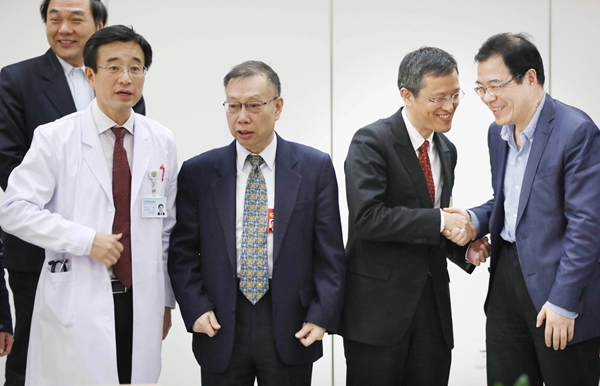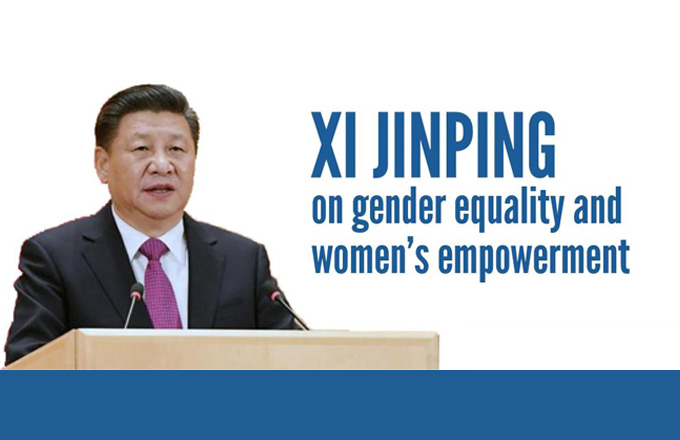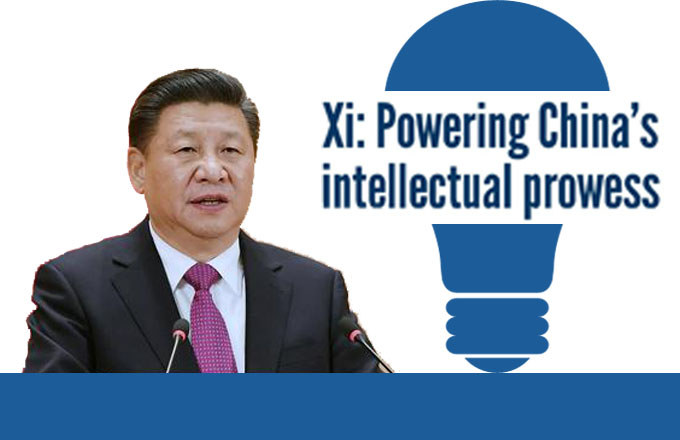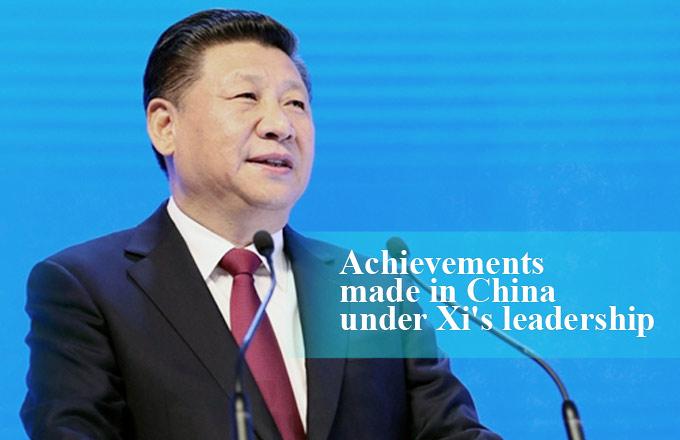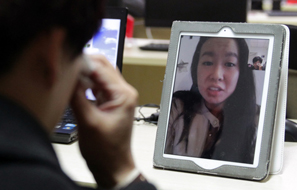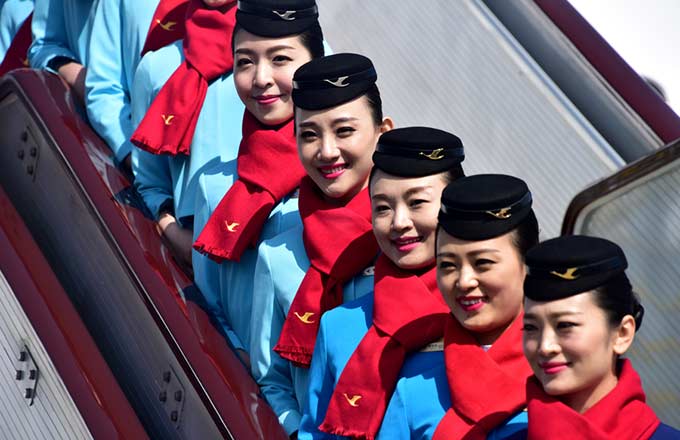Discipline clusters will build first-class universities, says expert
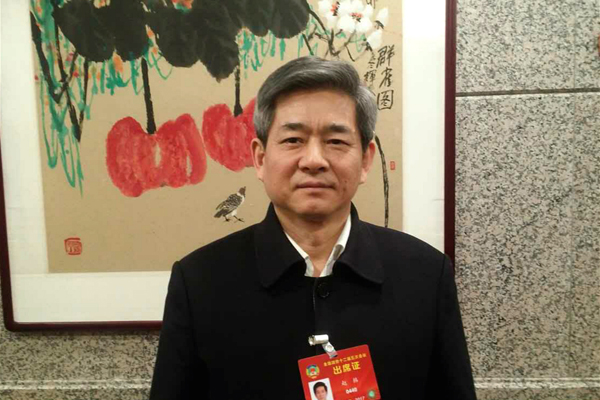 |
|
Zhao Han of Hefei University of Technology, who is also a CPPCC National Committee member. [Photo by Jiang Xingguang/chinadaily.com.cn] |
Building double first-class universities in China should always focus on developing "discipline clusters", said Zhao Han, vice president of Hefei University of Technology and a CPPCC National Committee National Committee member, in an exclusive interview with chinadaily.com.cn on March 7.
The term "double first-class university" refers to the terms "world-class university" and "first-class discipline", which were approved by China's national deepening reform lead group in 2016 as a new impetus for the development of China's higher education sector.
"The speeding up of discipline cluster construction can boost the performance of colleges and universities in the new era," said Zhao at the Beijing Conference Center. "It helps to meet the new demands of the country."
The two sessions -- the annual gatherings of the nation's top legislature and its top political advisory body-- started in early March. The NPC session opened on March 5, 2017, two days after the CPPCC National Committee session got underway. Some 5,000 participants from the NPC and the CPPCC National Committee are attending the event.
Zhao takes the subject of manufacturing as an example. He said that the new energy automobile industry is part of "smart manufacturing", which has recently become popular around the country.
Building new energy automobiles combines the disciplines of materials, automation, and environmental protection, according to Zhao. A cluster of those disciplines -- which would offer interdisciplinary vision and discussion -- is urgently needed to better provide solutions to the new energy automobile industry.
It could also shorten the time span between scientific and technological innovation and production.
As experts in digital design and manufacturing, Zhao and his scientific research team have achieved many advances in promoting new energy vehicles.
"Innovation is important in making the new type of cars," said Zhao. "We shouldn't be restricted by the ideas of traditional cars but try to build high-level new ones."
When asked about the talent flow among colleges, enterprises and government agencies, Zhao suggested that a more flexible personnel mechanism should be adopted, giving two examples drawn from his PhD graduates -- one is faced with difficulties in transferring from a research institute to a vocational school in China; the other has found many opportunities in suitable positions at colleges and enterprises aboard.
Colleges and universities must be more proactive in attracting leading professionals and experts. At the same time, they should not neglect nurturing their own talents by giving them enough space and funding to meet world-class standards, added Zhao.





